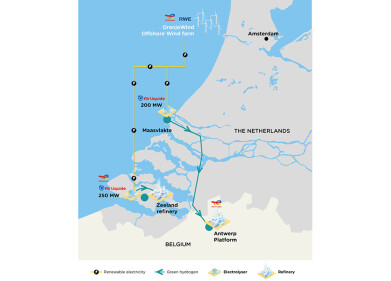Green energy
Why Is the EU Banning High-Power Hoovers?
Sep 10 2014
Last week, an EU-wide ban on high-power vacuum cleaners came into effect, preventing the sale of any models which operate on motors above 1,600 watts. This will affect a wide range of vacuum cleaning brands, many of which operate around the 1,800 watt-mark. The ban is part of a plan by the EU to decrease energy consumption in the coming years, and by 2017, they will further impose a ban on machines above 900 watt power consumption.
In the weeks leading up to the ban, sales on the high-power hoovers skyrocketed, as people rushed to buy the latest, most powerful model before it became impossible to do so. Retailers reported sales’ spikes of up to 44%, a trend at least in part encouraged by the consumer watchdog Which?. In a recent report, Which? warned that five of the seven “Best Buy” models from the last 18 months would be outlawed by this latest decree, and many more would follow in 2017.
The directive from the EU is an attempt to clean up our wasteful use of energy and encompasses not only vacuum cleaners, but has also earmarked other appliances, such as kettles, hair dryers and lawn mowers, for regulation. However, the scheme has come under attack from some quarters, who claim that using lower-power models will simply result in using them for longer, thus consuming the same (or even higher) amounts of energy.
Looking to a Cleaner European Future
This latest decree is only part of a concerted attack on energy profligacy by the European Commission. Back in January 2010, the EU set itself a target of reducing carbon emissions by 30% over a 30-year period (1990-2020) and a further 15% by 2030. Sectoral Emission Reduction Potentials and Economic Costs for Climate Change (SERPEC-CC), a two-year-long study, found that one viable option for achieving this target would be the replacement of many appliances with low carbon-emitting alternatives. More information can be found about this particular approach in this article: EU 30% Carbon Emissions Target: Achievable and Affordable.
Meanwhile, a decrease in energy consumption and a boost in sustainability can be achieved in other areas, as well. Independent organisation Green Energy (UK) launched their “Green Energy Deal” two years ago, which allows consumers the chance to finance their own clean, renewable energy in the form of solar panels. By harvesting energy sufficient to power their own needs and selling the surplus back to the grid, both the consumer and the environment can be better off. First Independent Green Deal Offering for Households Launched discusses the various merits of the incentive in more detail.
Whether or not reducing the available wattage on hoovers will ultimately prove itself a boon to energy efficiency or nothing more than an imposition on free will and a counterproductive measure remains to be seen. One thing is for sure - the EU and its inhabitants are seeking a brighter, cleaner future.
Events
May 11 2025 Vienna, Austria
May 18 2025 Algiers, Algeria
23rd International Water Management Exhibition
May 20 2025 Prague, Czech Republic
Singapore International Water Week Spotlight 2025
Jun 23 2025 Singapore
Jun 25 2025 Sao Paulo, Brasil














